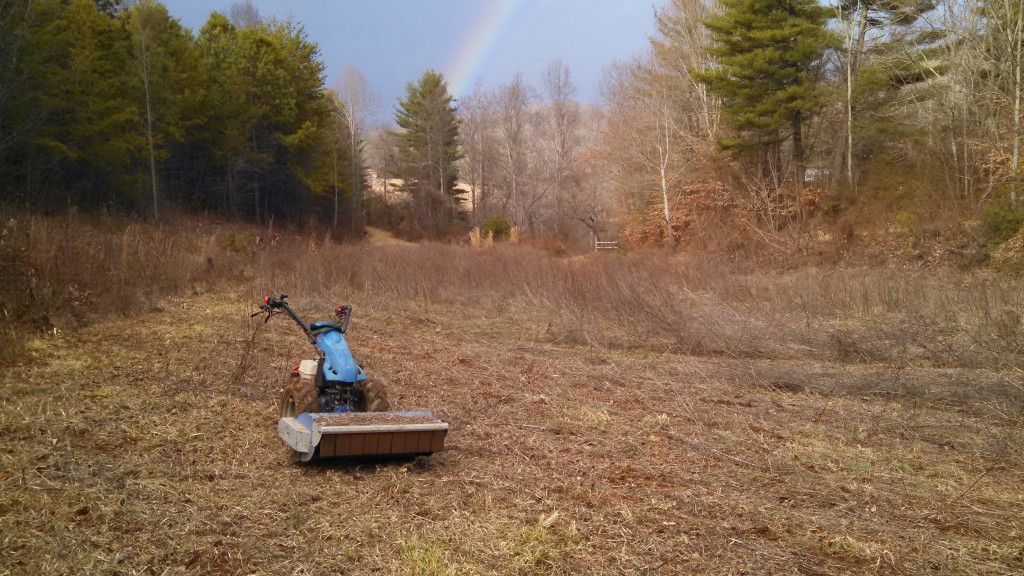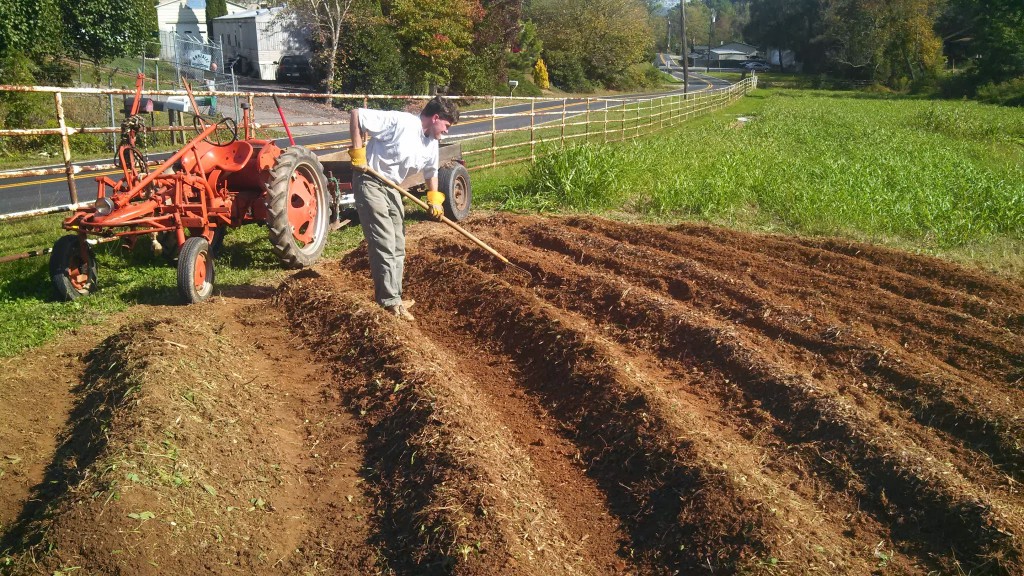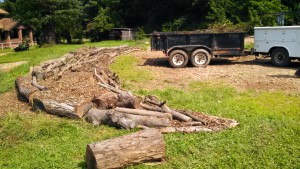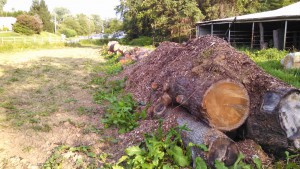About the Psycho Chicken Eco Farm
The Psycho Chicken Eco Farm is a permaculture, regenerative agriculture based vegetable farm using biological fertility practices, founded in February 2013, by Trina and Peter Brezny (Certified Appalachian Grown, and following Certified Naturally Grown practices though no longer certified, while not in production). We’re slowly bringing land into cultivation as we reshape the old “Treadway Ranch” into a productive environment balanced with nature using common sense, hard work, and patience. Alongside the ongoing land improvement and infrastructure upgrades, we currently produce a variety of fruits, vegetables, herbs, and flowers. Our small, chemical free apiary ensures good pollination on our and neighboring farms and our small, portable saw-mill keeps us in good supply of building materials for barn/farm house repairs and custom woodwork.
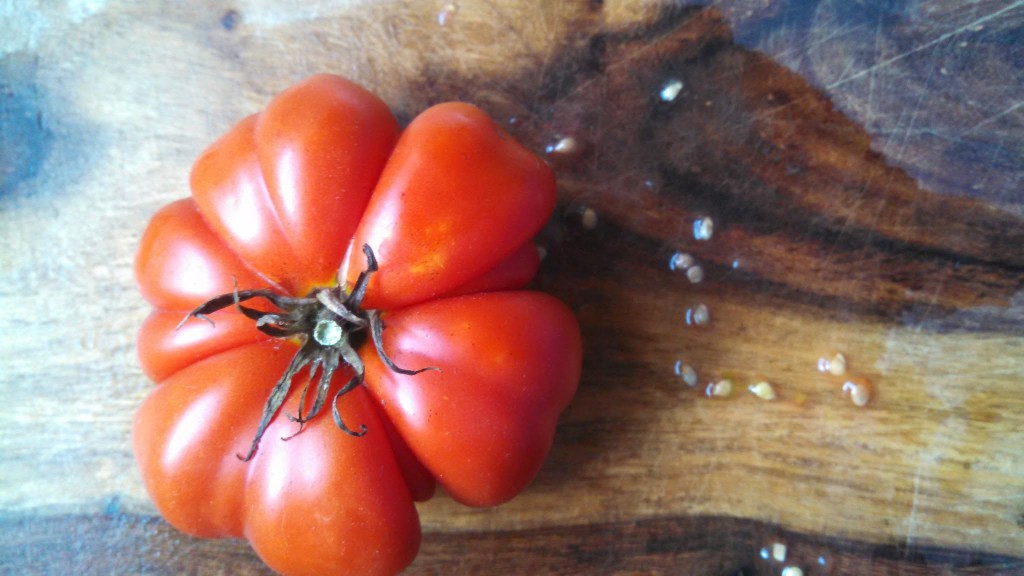
You have to be a little crazy to start a small farm these days, although some are making it and continue to be an inspiration. The economics can be depressing, weed and insect ‘pressure’ at times overwhelming, market competition fierce–yet every day we spend on the land our hearts grow stronger, our minds more peaceful, and our connection with nature profoundly deeper.
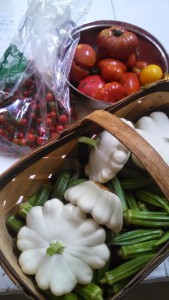
The box turtles who lay eggs in our gardens and the native bees who burrow into the furrows between our vegetables to hatch their young remind us not to till the soil unless we absolutely have to. The pickle worms who bored into three out of every four summer-squash we grew our first season, but are now in only one out of ten, confirm that Not Spraying –ANYTHING– (even with chemicals on the NOP approved list for organic farmers) is the right approach. The plentiful supply of pickle worms our first season have encouraged an army of predator insects and birds who now control the pickle worm population for us! The pickle worms also struggle to thrive on fruit from the seeds we harvested ourselves, now genetically tuned to our farm to resist the “pests” we now call our pickle worm friends who continue to sustain the beneficial insects, birds, bacteria, and fungus who support our efforts to grow local, healthy food.
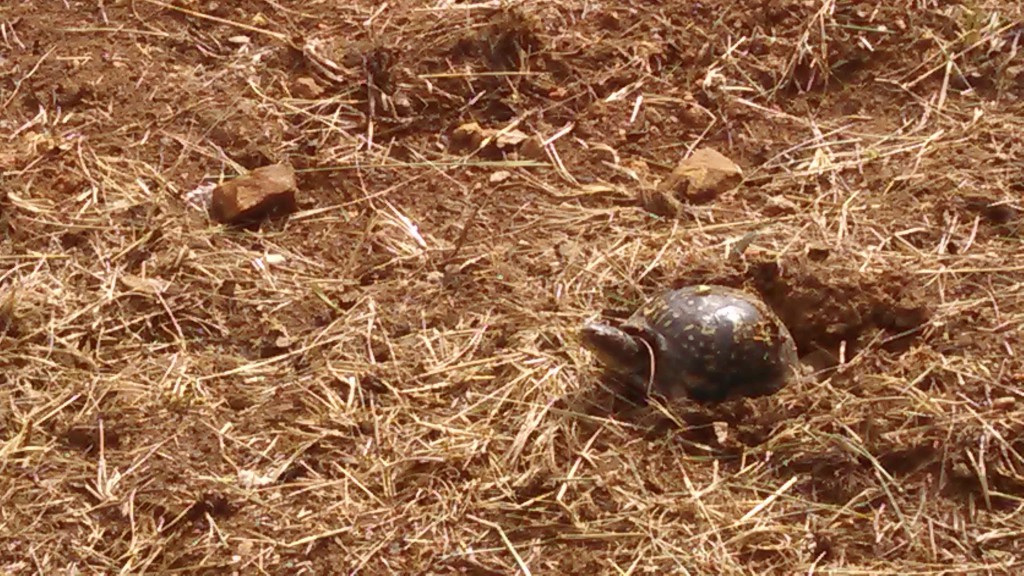
As small farmers we have a commitment to be responsible stewards of the land. Every decision is made with minimizing energy inputs and encouraging long term sustainability in mind. We face many challenges, not the least of which is economic–where a culture of greed and disrespect inflates land costs and perpetuates the idea that land is a commodity to be bought and sold, not cherished and lived with (yes, with, not on), while the value of healthy food remains so small that an army of what can only be called slave laborers and land depleting chemical and mechanized practices are required to prop up our ‘modern’ food system’s corporate, agribusiness model. Regardless, we work hard every day to not only produce food, but also to improve and sustain the fields, as well as keep our ‘day jobs’ to be able to afford the land and side step the need for ‘cheap labor’ to survive.
From water conserving and nutrient recycling Hugel beds (mini beds above, larger ones in progress pictured below) to contoured deep-mulched furrows, drainage-based and drip irrigation, we research, investigate, test, and get creative with agricultural techniques geared toward long term sustainability. Our barns are covered in solar panels, we minimize the use of oil-burning machinery, and we never, ever put pesticides or synthetic fertilizers on our crops.
We love the land, we love the environment, we love ridiculously good produce, and we love sharing it with the local community.
Apiary (more about bee-keeping)
Peter became a NC State Certified bee-keeper in June 2015, and our little apiary continues to grow. Our home built, top-bar hives provide a more natural environment for the honey bees. No plastics or chemicals (even ‘organic approved’ ones) wind up in the apiary. Instead we allow the bees to swarm, build their own comb, and rear their own new queens, which dramatically reduces varroa mite problems found in apiaries using more conventional methods and ‘Langstroth’ style hives with plastic ‘foundation’ and chemical mite control procedures. This more natural technique also encourages regionally tuned, and wildly more robust genetics. The April, 2015 g+ album has some good images of the hives, apiary, and the installation of two new colonies this spring.
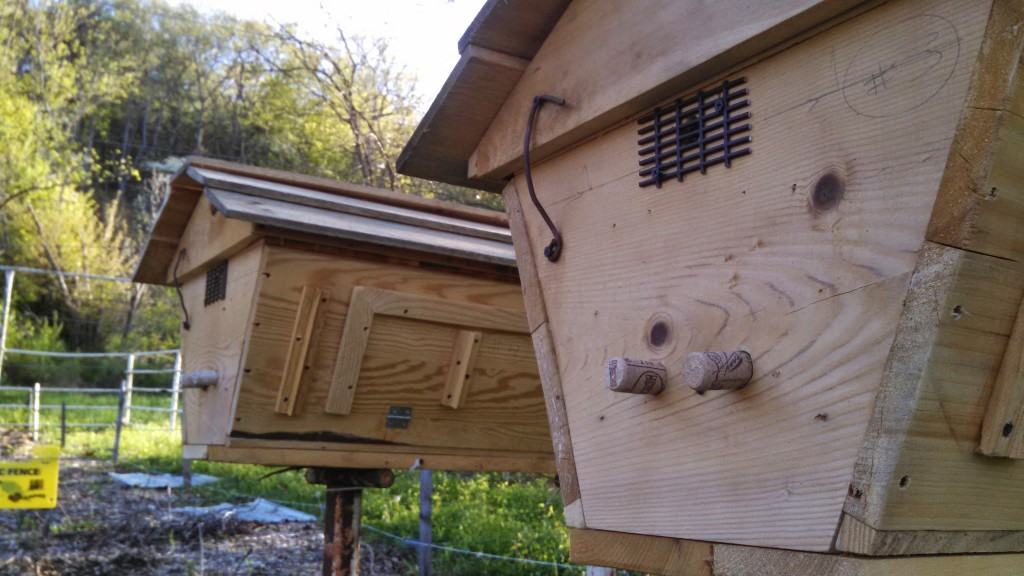
Mushroom Barn
Following Sepp Holzer’s advice on mushroom cultivation we’ve “planted” a good many logs, inoculated with several varieties of Oyster mushroom mycelium, as well as a lot of Shiitake. We’re definitely feeling the ‘slow burn’ with this project, letting logs make mushrooms at their own pace, not forcing them to produce like most commercial operations.
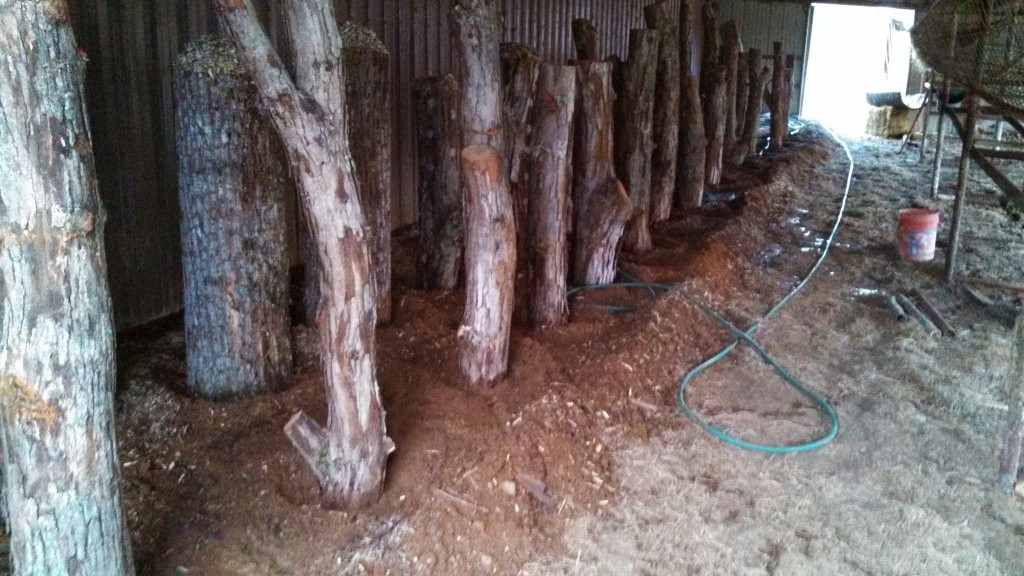
Micro ‘Swing-blade’ Saw Mill
Because saw mills are just so freaking cool, we partnered with Smartfeller Treeworks and went in together on the smallest (most affordable) portable swing-blade mill available. On offer from a nice gentleman in South Georgia, the mill has been at the farm since early 2014 producing much needed rough cut lumber for the farm and a few custom pieces of prime wood for fine wood-workers in the area. Our solar powered wood drying kiln is nearly complete, which will allow us to dry the lumber we cut in nearly 1/5 the time it takes now.
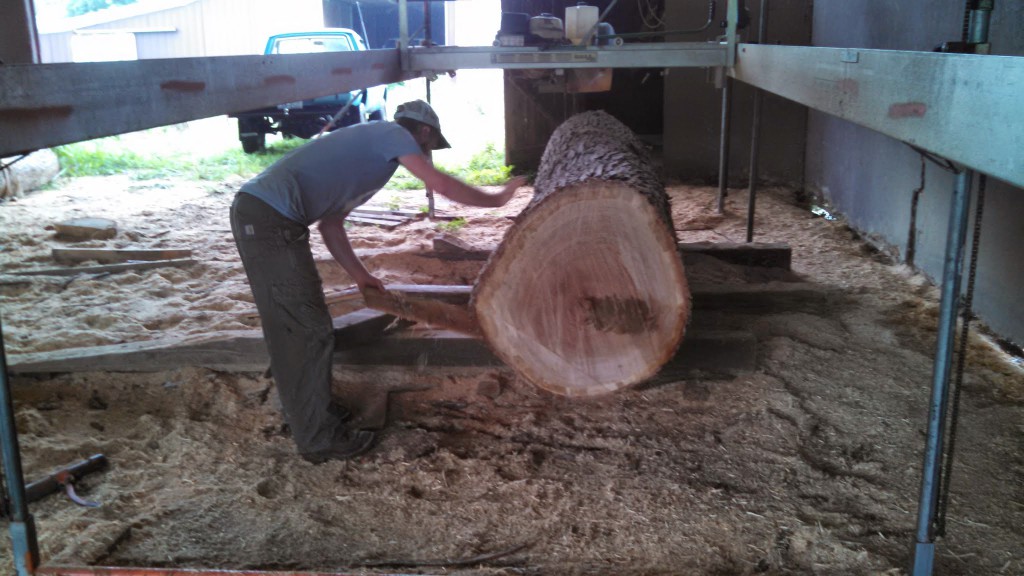
‘Jean-Michelle’ – the amazing Renault (Mack Branded) roll back farm truck!
With the same wheel base as a standard 3/4 ton pickup, but tagged for 25,000 lbs., the bio-diesel burning, ’87 Mac MS-250 has really come in handy when moving those big logs, tractors, combines, manure, or wood chips. Every time the inline-six, turbo diesel gets warmed up and stars to purr, I can hear Jean-Michelle whispering, “Vive la France!” Thanks Kemp Melton, for giving us such a ‘good deal’…and it’s ok, I forgive you for not telling me ahead of time about the $1500.00 price tag on rebuilding the bad air brake cylinder.
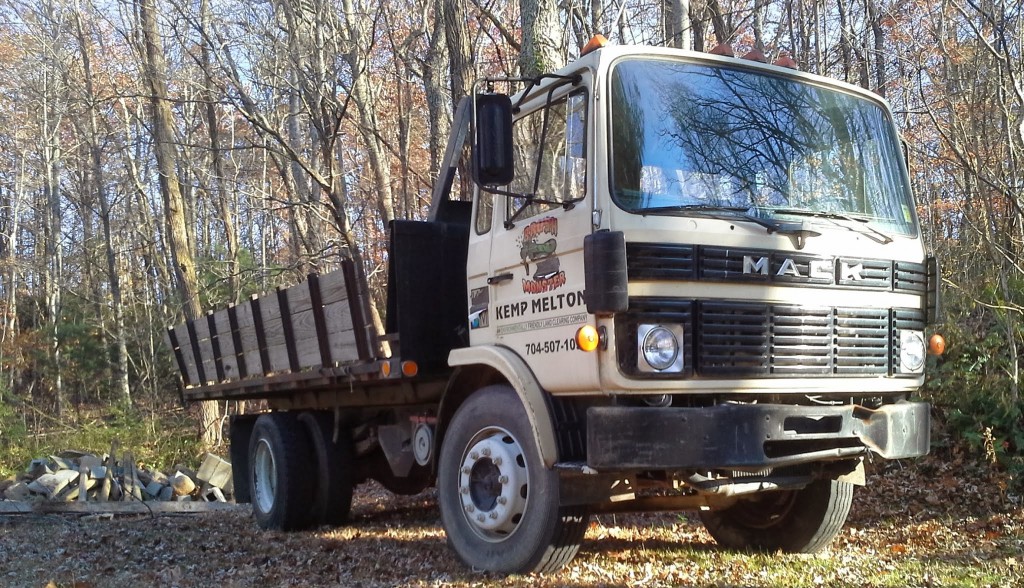
Community Partners
- Smart Feller Treeworks, Top Notch Tree Service, (biomass delivery for Hugel Bed construction)
- TJ Dutton of Crown, Root, and Soil (soil and tree health consulting)
- Wedge Brewing (spent brewery grain for composting)
- Asheville School Equestrian department (manure for composting)
- Joseph Salvatore of the Garden Tea Company
- Appalachian Sustainable Agriculture Project
- Carolina Farm Stewardship Association

Reference / Link Suggestions / Inspiration
-
- Rodale Institute
- Sepp Holzer’s Permaculture, A Practical Guide to Small-Scale, Integrative Farming and Gardening
- Buffalo Bird Woman’s Garden (HTML book) (PDF)
- One Straw Revolution
-
- W. A. Mangum’s top bar bee-keeping website and book http://www.tbhsbywam.com/
- Jean Pain Composting
- ChuckE2009’s welding related youtube chanel
- Cornel Small Farms youtube chanel
- Perrine and Charles HERVE-GRUYER farm in France: https://www.fermedubec.com/
- Richard Perkins farm in Sweeden: http://www.ridgedalepermaculture.com/
- Jean-Martin Fortier’s little farm in Quebec: http://www.themarketgardener.com/ and his big one: https://en.fermequatretemps.com/
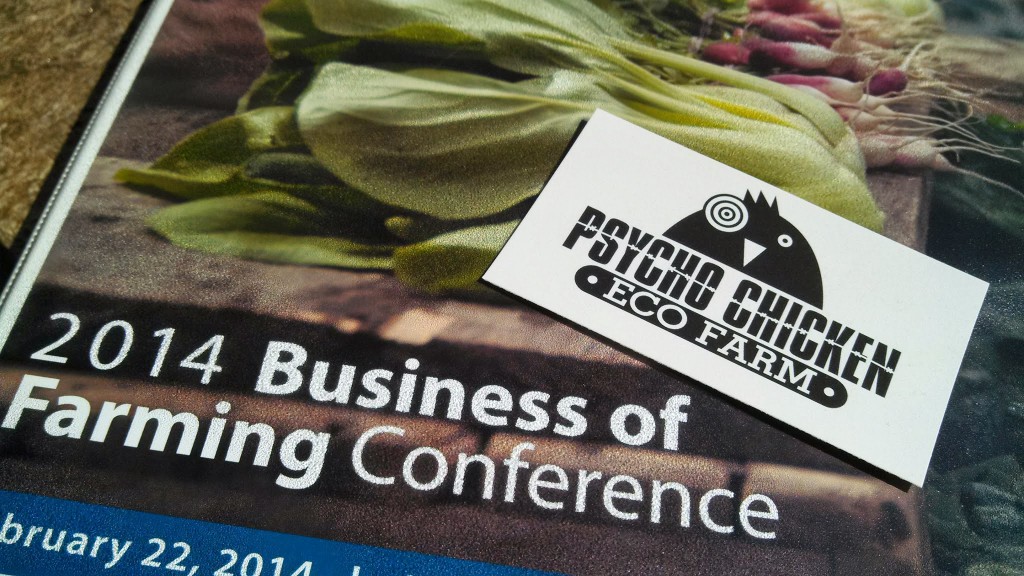
Special Thanks
If it takes a village to raise a child, it takes the entire community around that village to feed it. We’ve been seriously blessed by generous support from ‘heaps of peeps’ willing to get their hands dirty spending valuable time getting us past the initial big push of making the infrastructure functional again, (getting doors to open and close, water to flow through the pipes, and electrons to make it from our solar panels out to the grid) building the soil from an over-grazed, neglected, and abused horse/cattle/rodeo, (bringing in horse manure, leaves, wood-chips, and woody debris by the dump truck load) and simply putting things where they’re supposed to go (we recycled over 250 gallons of used motor oil ‘stored’ in the big barn, excavated/sorted/recycled/landfilled over seven independent trash burn piles, and made a serious dent removing over 3 tons of gravel from the ‘rodeo field’ by hand, one bucket at a time). We’ve also learned a few hard lessons on which neighbors are honest, generous, well-meaning, and which ones are well…the opposite of those neighborly qualities we cherish and try to reciprocate. So thanks to all of you who have taken an hour, or a day, or weeks, or months to help us keep local, organic, community based agriculture alive here in Asheville.
